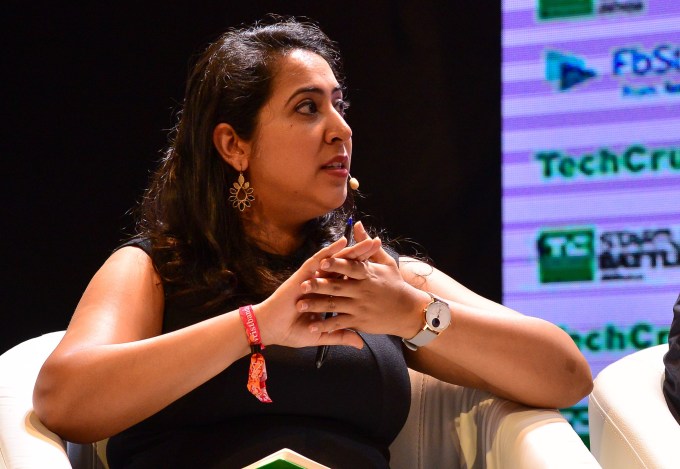Kyle Wiggers / VentureBeat:
Microsoft and Qualcomm's Vision AI Developer Kit, which can run containerized Azure AI services locally, now available for $249 with Snapdragon 603, 8MP camera — In May 2018 during its annual Build developer conference in Seattle, Microsoft announced a partnership with Qualcomm to develop …
Tech Nuggets with Technology: This Blog provides you the content regarding the latest technology which includes gadjets,softwares,laptops,mobiles etc
Tuesday, September 3, 2019
Microsoft and Qualcomm's Vision AI Developer Kit, which can run containerized Azure AI services locally, now available for $249 with Snapdragon 603, 8MP camera (Kyle Wiggers/VentureBeat)
Flipkart launches Hindi interface to tap into next 200 mn e-shoppers
Samsung Said to Be Working on Foldable Phone That Collapses Into Square
European Probe Dodges SpaceX Satellite After Missed Message
Realme 5 Pro Goes on Sale for the First Time in India Today
Mobikwik appoints Goldman Sachs India for its fundraise
Accion Venture Lab launches $23M inclusive fintech startup fund
Accion Venture Lab—the seed-stage investment arm of non-profit Accion—has raised $23 million for a new inclusive fintech startup fund.
The Accion Venture Lab Limited Partnership, as its called, will make seed-stage investments in inclusive fintech startups, defined as ventures that “that leverage technology to increase the reach, quality, and affordability of financial services for the under-served at scale,” per a company release.
The new fund was raised with capital contributions from a number of participants, including the Ford Foundation, Visa Inc. and Proparco—the development finance institution of the French government.
The additional $23 million brings Accion Venture Lab‘s total capital under management to $42 million.
The new LP fund will consider startups from any geography, as along as they meet specific criteria. Overall, Accion Venture Lab doesn’t have regional investment quotas, but does look to allocate roughly 25 to 30 percent of its funds to Africa, Accion Venture Lab Managing Director Tahira Dosani told TechCrunch on a call.
“We want to continue to focus on Latin-America, on Sub-Saharan Africa, on Southeast Asia as well as in the U.S. It really is about…where we see the need and the opportunity across the markets that we’re in,” she said.
In line with Accion’s mandate to boost financial inclusion globally, Accion Venture Lab already has a portfolio of 36 fintech startup investments across 5 continents—including 9 in the U.S., 8 in Latin America, and 8 in India.
“Our goal is to really be the that first institutional investor in the companies we invest in. That’s were we see the biggest capital gap. And it’s where we build capability and expertise,” Dosani said. In 2018, Accion Venture Lab successfully exited Indian fintech company Aye Finance, following exits in 2017 and 2016.

This year Accion Venture Lab supported a $6.5 million Series A investment in Lulalend, a South African startup that uses internal credit metrics to provide short-term loans to SMEs that are often unable to obtain working capital.
Accion’s new LP fund will follow past practice and make investments typically in the $500,000 range. It will start sourcing startups immediately through its investment leads around the world and already made its first seed financing to U.S. venture Joust—a fintech platform for gig economy workers.
Accion Venture Lab’s LP fund is the first time the organization has pooled third-party investment capital, according to a spokesperson.
On the appeal for those contributing, Dosani named Accion’s geographic reach and experience. “We think that’s our strength, because we’re able to invest in similar business models across different markets. And we’re able to bring that knowledge from one market to another,” she said.
The Ford Foundation contributed $2 million, according to an email from Christine Looney, Deputy Director, Mission Investments. Visa didn’t disclose its capital contribution, but told TechCrunch it will play a role in governance through its participation in a Limited Partners Advisory Committee for the new fund.
As a point of observation, Accion Venture Lab stands out as a fund for giving an equal pitch footing to fintech ventures across frontier, emerging, and developed markets from Lagos to London.
Accion’s new LP fund—along with the organization’s commitment to make nearly a third of its investments in Africa—means more capital to digital finance startups on the continent. By a number of estimates, Africa’s 1.2 billion people still represent the largest share of the world’s unbanked and underbanked population.
Kobo brings the Forma form factor to a cheaper model
I’ve long had a soft spot for Kobo for a few reasons. First is the simple fact that the company (now part of Rakuten) was one of the last few competing with Amazon in the e-reader market. Second is features like Pocket integration. Third is the device’s openness to file formats like ePub that don’t require the device to be tied to a single store.
Kobo’s also never been afraid to experiment. Last year’s Forma was the perfect example. A direct shot against Kindle’s high-end Oasis, the reader combined a contoured form factor and physical page-turn buttons with an 8-inch screen. That last bit was probably enough to keep the device firmly in the niche category, even without the $280 price tag.
The new Libra H20 is a far more utilitarian product, applying the Libra’s form factor to a 7-inch screen device that retails for a more reasonable $170. It’s still not cheap in the world of e-readers, of course. That’s about $40 more than, say, the Kindle Paperwhite, but it’s nice to see some of these features start to trickle down into more accessible products. The world of e-readers is notoriously slow to innovate — thanks likely to the fact that there are relatively few players left.

I’ve come to appreciate the “handle” design adopted for these devices by e-reader makers. It’s perhaps a bit less satisfying than the more traditional symmetry, but it’s a lot more focused on how these products are used. After the demise of the Nook, too many companies took an entirely minimalist route. The inclusion of the side panel and pair of physical page buttons is a welcome shift toward function over form.
With the cheaper price tag, of course, comes cheaper materials. The Libra H20 is pretty plasticky — especially after using the Oasis. The buttons, too, don’t feel quite as solid as the Oasis’s, likely owing to less premium material. Also, this is more of a strange quirk than specific critique, but the functionality is inverted with the buttons, by default, with the top moving backward and the front going forward through the book. This is an easy fix in the settings, though Kobo refers to that as “inverted.”

The form factor works well, with the ability to read in both landscape and portrait, autorotating using the built-in accelerometer. The back has a textured grip, coupled with a large power button. On the right side (or bottom, depending on your perspective) is the microUSB for charging and file transfer (USB C is basically non-existent in the world of e-readers for the time being.
Kobo’s also tweaked the software to include better menus, improved book scrubbing and previews. Other touches include the ability to adjust the front light intensity by swiping the side of the screen.
[gallery ids="1873089,1873088,1873087,1873086,1873083"]
As the name implies, the device is waterproofed, with an IPX8 rating — that’s about up to 60 minutes in two meters of water, so yeah, you can take it in the bath. Storage is 8GB (~6,000 books), paired with 512 MB of RAM and a 1,200 mAh battery that should provide you’re standard weeks on a single charge.
The Libra goes up for pre-order on the 10th. It will be available in stores a week later.
Elliptic banks $23M to shrink crypto risk, eyeing growth in Asia
Crypto means risk. To UK company Elliptic it also means business. The startup has just closed a $23M Series B to step up growth for a crypto risk-management play that involves selling tech and services to help others navigate the choppy darks of cryptocurrencies.
The round was led by financial services and asset management firm SBI Group, a Tokyo-based erstwhile subsidiary of SoftBank. Also joining as a new investor this round is London-based AlbionVC. Existing investors including SignalFire, Octopus Ventures and Santander Innoventures also participated. SBI Group’s Tomoyuki Nii and Ed Lascelles of AlbionVC are also joining Elliptic’s board.
Flush with a sizeable injection of Series B capital, Elliptic is especially targeting business growth at Asia — with a plan to open new offices in Japan and Singapore. It says client revenues in the region have risen 11x over the past two years.
We last spoke to Elliptic back in 2016 when it had just raised a $5M Series A.
The 2013-founded startup began by testing the crypto waters with a storage product before zeroing in on financial compliance as a pain-point worth its time. It went on to develop machine learning tech that screens transactions to identify suspicious patterns and, via them, dubious transactors.
Now it offers an integrated suite of products and services for financial institutions and crypto businesses to screen volumes of crypto-flows that sum to billions of dollars in transactions per day — analyzing them for links to illicit activity such as money laundering, terrorist financing, sanctions evasion, and other financial crimes.
It’s focused on selling anti-money laundering compliance, crypto forensics and cryptocurrency investigation services to the private sector — though has also sold tools direct to law enforcement agencies in the past.
Billions of dollars in financial services terms is of course just a tiny drop in a massive ocean of money movements. And growth in the crypto risk-management space has clearly required more than a little patience, from a startup perspective.
Three years ago Elliptic’s first blockchain analytics product had 10-20 Bitcoin companies as customers. That’s now up to 100+ crypto businesses and financial institutions using its products to shrink their risk of financial crime when dealing with crypto-assets. But the more three than year gap between Elliptic’s Series A and B is notable.
“To date, we’ve focused on product development and assembling the right team as the market has matured. This new funding will help us expand in the right way, namely by making the push into Asia without diluting our focus on the US and EMEA,” says co-founder and CEO James Smith when asked about the gap between financing rounds.
He declines to comment on how far off Elliptic is from achieving breakeven or profitability yet.
“We provide best-in-class transaction monitoring products for crypto-assets, which are trusted by crypto exchanges and financial institutions worldwide,” he adds of its product suite. “Our products are used as key components of larger compliance processes that are designed to minimise money laundering risks.”
With the addition of SBI Group to its investor roster Elliptic gains a strategic partner in Asia to help push what it dubs “bank-grade risk data” at a new wave of established financial institutions it believes are eyeing crypto with growing appetite for risk as larger players wade in.
Larger players like Facebook. Elliptic’s PR name-drops the likes of Facebook’s Libra cryptocurrency, Line Corporation’s LINK and central bank digital currencies, as markers of a rise in mainstream attention on crypto assets. And it says Series B funds will be used to accelerate product development to support “an emerging class of asset-backed crypto-assets”.
Regulatory attention on crypto — which has been rising globally for years but looks set to zip up several gears now that Facebook has ripped the curtain off of an ambitious global digital currency plan which also has buy-in from a number of other household tech and fintech names — is another claimed feed in for Elliptic’s business. More crypto implies growing risk.
It also points to the intergovernmental Financial Action Task Force’s global regulatory framework for crypto-assets as an example of some of the wider risk-based requirements and now wrapped around those dealing in crypto.
The focus on Asia for business expansion is a measure of relative maturity of interest in opportunities around crypto-assets and localized attention to regulation, according to Smith.
“Revenue growth is certainly very strong in this region. We have been working with customers in Asia for a number of years and have seen first-hand how vibrant their crypto-asset ecosystems are. Countries such as Singapore and Japan have developed clear crypto-asset regulatory frameworks, and businesses based in these countries are serious about meeting their compliance obligations,” he says.
“We have also found that traditional financial institutions in Asia are particularly keen to engage with crypto-assets, and we will be working with them as they take their first steps into this new asset class.”
“We believe that crypto-assets will play an increasingly important role in our everyday lives and are shaping the future of banking. Our investment in Elliptic is a further commitment to this belief and to SBI Holding’s appetite to help build the digital asset-related ecosystem,” adds Yoshitaka Kitao, CEO of the SBI Group, in a supporting statement.
“Elliptic’s pioneering approach is enabling the transparency, integrity, and trust necessary for this vision to become reality. We are seeing a growing demand for their services across our portfolio of crypto-assets related companies and view Elliptic as best-placed to meet this considerable opportunity.”
While Elliptic’s business is focused on reducing the risk for other businesses of inadvertently transacting with criminals using crypto to launder money or otherwise shift assets under the legal radar, the proportion of transactions that such illicit activity represents in the Bitcoin space represents a tiny fraction of overall transactions.
“According to our analysis, approximately $1BN in Bitcoin has been spent on the dark web, so far in 2019, on items ranging from narcotics to stolen credit cards. This represents a very small share of all Bitcoin activity — less than 0.5% of Bitcoin payments over this period,” says Smith.
Not that that diminishes the regulatory risk. Nor, therefore, the business opportunity for Elliptic to sell support services to help others avoid touching the hot stuff.
“Crypto money launderers are continually developing new techniques to cover their tracks — from the use of mixers to transacting in privacy coins such as monero,” Smith adds. “We are also constantly innovating to keep pace with this and help our clients to detect money laundering. For example our work with researchers from MIT and IBM demonstrated the application of deep learning techniques to the identification of illicit crypto-asset transactions.”
Oyo in talks to acquire Lovely Professional University's hostel assets
ETech Top 5: Slower festive sales growth, Angel tax worries persist & more
Flipkart goes desi to tap into Bharat
Festive season: Brands to offer retailers record margins
YouTube launches a Premium paywall for song lyrics on YouTube Music, after testing it in recent months; users get five free lyrics before they have to subscribe (Abner Li/9to5Google)
Abner Li / 9to5Google : YouTube launches a Premium paywall for song lyrics on YouTube Music, after testing it in recent months; users get...
-
Amrith Ramkumar / Wall Street Journal : An interview with White House OSTP Director Michael Kratsios, a Peter Thiel protégé confirmed by ...
-
http://bit.ly/2XqNIDz